22
Jun
Critical Update Available For MDaemon Messaging Server
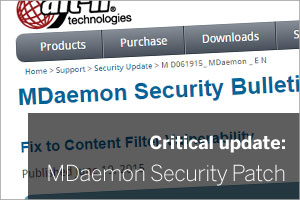 In order to maintain their excellent reputation for secure software, Alt-N Technologies, developer of Exchange alternative MDaemon Messaging Server, continually perform rigorous testing across their portfolio of products, including both current and historic releases.
In order to maintain their excellent reputation for secure software, Alt-N Technologies, developer of Exchange alternative MDaemon Messaging Server, continually perform rigorous testing across their portfolio of products, including both current and historic releases.


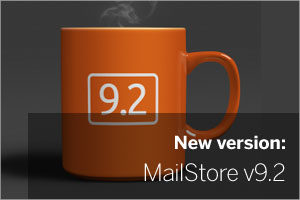 Today sees the latest point release in the roadmap of German developer MailStore, and in addition to a long list of fixes there are a couple of interesting new developments which have caught our collective Zen Software eye.
Version 9.2's 'juicy bits' that I'll talk a little more about in this post include:
Today sees the latest point release in the roadmap of German developer MailStore, and in addition to a long list of fixes there are a couple of interesting new developments which have caught our collective Zen Software eye.
Version 9.2's 'juicy bits' that I'll talk a little more about in this post include:
 With the EoL deadline for Windows Server 2003 fast approaching, decisions over operating system upgrades and in particular, whether or not to stick with Microsoft Exchange, are currently high up on the agenda for many small businesses.
For alternatives to Exchange such as MDaemon Messaging Server
With the EoL deadline for Windows Server 2003 fast approaching, decisions over operating system upgrades and in particular, whether or not to stick with Microsoft Exchange, are currently high up on the agenda for many small businesses.
For alternatives to Exchange such as MDaemon Messaging Server  If you're struggling to manage your mailbox sizes, or just need to keep email for long periods for compliance reasons, you may well have found yourself looking around for an archiving solution of some kind.
There are plenty out there, with many sharing some similarities, however it's the technical approach of the various products that's a good method for distinguishing them.
Some of the vendors you'll come across will employ the use of a technology known as 'stubbing'. As MailStore Server doesn't, in this post I'll take a brief look at what it is, and why it's German developers have decided against stubbing and instead chosen an alternative route.
If you're struggling to manage your mailbox sizes, or just need to keep email for long periods for compliance reasons, you may well have found yourself looking around for an archiving solution of some kind.
There are plenty out there, with many sharing some similarities, however it's the technical approach of the various products that's a good method for distinguishing them.
Some of the vendors you'll come across will employ the use of a technology known as 'stubbing'. As MailStore Server doesn't, in this post I'll take a brief look at what it is, and why it's German developers have decided against stubbing and instead chosen an alternative route.
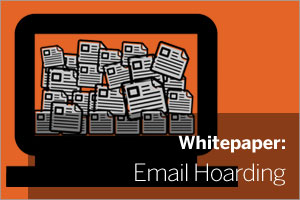 Keeping more email than is actually needed is a habit that most people fall in to at some stage. But make no mistake, it is a problem. And it's not one to be ignored.
Keeping more email than is actually needed is a habit that most people fall in to at some stage. But make no mistake, it is a problem. And it's not one to be ignored. Rochdale, Lancashire. Birthplace of the Co-op, star of cinema and music hall Gracie Fields and home to such celebrity A-listers as Bill Oddie and Noorul Choudhury of BBC's The Apprentice. Week six no less.
An unlikely location for a "tech hub" you may think, and you'd be right...
Rochdale, Lancashire. Birthplace of the Co-op, star of cinema and music hall Gracie Fields and home to such celebrity A-listers as Bill Oddie and Noorul Choudhury of BBC's The Apprentice. Week six no less.
An unlikely location for a "tech hub" you may think, and you'd be right...
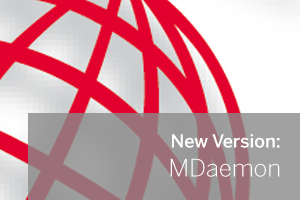 Today sees the release of the latest major version of MDaemon, the popular email server for Windows and alternative to on premise Exchange.
Like all MDaemon releases, the developers at Alt-N continue to add new customer requested features and enhancements.
Today sees the release of the latest major version of MDaemon, the popular email server for Windows and alternative to on premise Exchange.
Like all MDaemon releases, the developers at Alt-N continue to add new customer requested features and enhancements.
 Microsoft Small Business Server was
Microsoft Small Business Server was 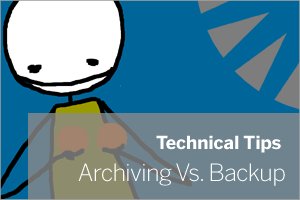 If you're already backing up your email as part of a standard routine, you could be forgiven for thinking that adding archiving to the mix would needlessly be doubling up.
I should mention at this point, if you're not doing anything at all, then you really need to be rectifying that situation rather than reading our blog (as nice as it is to have you).
If you're already backing up your email as part of a standard routine, you could be forgiven for thinking that adding archiving to the mix would needlessly be doubling up.
I should mention at this point, if you're not doing anything at all, then you really need to be rectifying that situation rather than reading our blog (as nice as it is to have you).
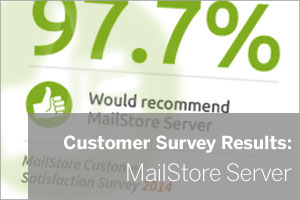 Our friends over at the German developer of
Our friends over at the German developer of